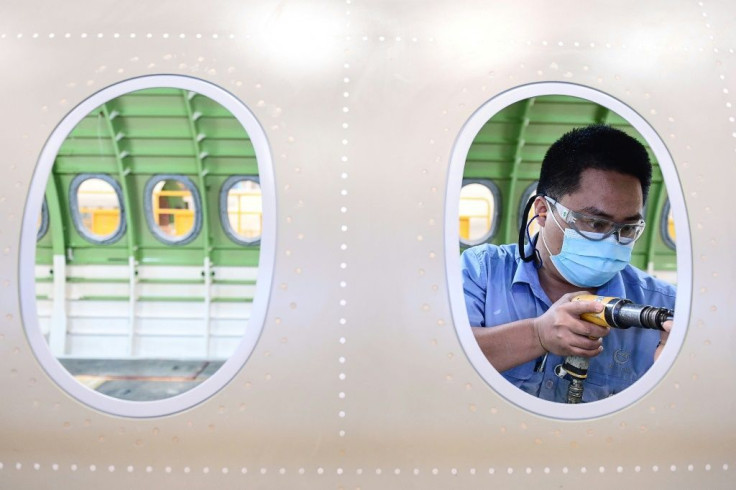China Factory Activity Picks Up In June Despite Global Headwinds
China's factory activity picked up pace in June, official data showed Tuesday, although analysts warned weak global demand and a potential coronavirus resurgence are weighing on its longer-term recovery.
The world's second-largest economy has been whirring back to life after the virus and sweeping lockdowns prompted a near-halt in activity at the start of the year.
But economists caution that momentum may weaken in the second half of 2020 as key markets struggle to recover from the crisis and as orders for medical supplies abroad -- which have boosted exports -- peak and fall.
China's Purchasing Managers' Index (PMI), a key gauge of activity in factories, came in at 50.9 points in June, better than the 50.5 forecast in a Bloomberg News poll of analysts and up 0.3 points from May.
Anything above 50 is considered to show expansion.
The non-manufacturing PMI came in at 54.4 points from 53.6, according to the National Bureau of Statistics (NBS).
The readings will be welcomed as the economy slowly emerges from the disease, having shrunk in the first quarter for the first time in decades.
NBS senior statistician Zhao Qinghe noted that the surprise uptick came as "supply and demand continued to pick up" in June, while imports and exports are also looking better as major global markets restart their economies.

But he warned there were still "uncertainties", with the import and export indexes below the 50-mark and a larger number of small enterprises reporting a lack of orders.
UOB economist Ho Woei Chen told AFP the poorer performance of small businesses suggests China's government needs to continue providing targeted support.
And while there was a relatively good recovery in the second quarter, Nomura chief China economist Lu Ting flagged "strong headwinds ahead and heightened uncertainty".
"The momentum could lose some steam in coming months," he warned.
Lu told AFP the manufacturing PMI improvement may have been driven by an improvement in new export orders but they remained in contraction territory, adding that the fall in the employment sub-index also did not bode well.
"The rebound in new COVID-19 cases in Beijing and some surrounding cities dealt a blow to the service sector," he said, adding that recent data suggested no clear recovery in tourism in recent months.
Premier Li Keqiang has made stabilising employment a top priority, targeting new urban employment of over nine million -- a drop from 11 million targeted in 2019 -- after the pandemic hit.
Martin Rasmussen of Capital Economics added that overseas shipments "look ripe for a pullback despite the improvement in export orders", with demand for virus-related products like masks that were needed in the global outbreak likely to weaken.
"But the continued rapid issuance of government bonds means that infrastructure spending should remain strong and help keep the recovery on track," he said.
© Copyright AFP 2024. All rights reserved.











